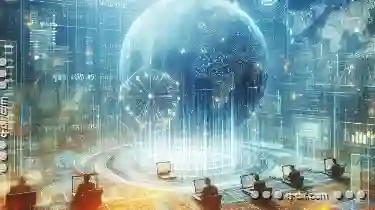Filters are essential tools in both digital and traditional photography, used for controlling the exposure of light entering the camera. They play a ...
 critical role in determining how an image will be recorded on film or electronically captured by a sensor. The quality and effectiveness of a filter can significantly impact the final look and feel of your photographs, whether you're dealing with brightness, contrast, color correction, or other aspects that might need adjustment.
critical role in determining how an image will be recorded on film or electronically captured by a sensor. The quality and effectiveness of a filter can significantly impact the final look and feel of your photographs, whether you're dealing with brightness, contrast, color correction, or other aspects that might need adjustment.1. Understanding Filter Types
2. The Role of Filter in Photography
3. The Decline of Filter Usage
4. When Did We Stop Questioning?
5. The Case For Filters: When They Still Matter
6. Conclusion: The Continued Relevance of Filters
1.) Understanding Filter Types
- Neutral Density (ND) Filters: Designed to reduce light entering the camera by allowing only certain parts of the spectrum through, these filters are useful for long exposures in bright conditions, reducing shutter speed without changing the exposure settings.
- Polarizing Filters (PL): These filters help reduce glare and enhance colors by rotating the polarization angle of light that passes through them.
- Graduated Neutral Density (GND) Filters: Useful when you need to balance the exposure between the sky and the ground in a scene, these filters gradually darken one half while leaving the other part of the image properly exposed.
- Color Correction Filters: These are designed to alter specific colors within an image, useful for balancing or enhancing hues that might be off due to light sources or environmental conditions.
2.) The Role of Filter in Photography
In photography, filters serve multiple purposes:
1. Adjusting Exposure: By controlling the amount of light entering the camera, filters help balance exposure under various lighting conditions.
2. Enhancing Colors: They can correct color casts introduced by lenses or lighting to achieve a more accurate color representation.
3. Creating Effects: Filters like graduated neutral density and polarizing filters are used to create unique effects that might not be achievable otherwise with camera settings alone.
4. Protecting the Lens: Some filters also serve as protectors against scratches, dust, and minor impacts by placing themselves between the lens and the filter itself.
3.) The Decline of Filter Usage
Over time, there has been a trend where some photographers have moved away from using filters or questioned their necessity due to advancements in camera technology:
- Digital Sensitivity: Modern cameras are quite sensitive and can handle various light conditions better than ever before without the need for additional filtration.
- Image Processing Software: Post-processing software like Photoshop, Lightroom, or mobile editing apps offer more flexibility and control over image adjustments, making filters less critical in some workflows.
- Creative Freedom: Some photographers argue that using filters can limit creativity by imposing a specific look on the captured scene, leading to fewer spontaneous compositions.
4.) When Did We Stop Questioning?
The decline of filter usage might have started when digital photography became mainstream and more accessible. With easy access to high-quality lenses, image sensors with low noise levels, and powerful editing software, photographers found that they could achieve almost any desired effect through post-processing rather than relying on filters. Additionally, the democratization of professional-grade photo equipment has made it possible for amateurs to produce impressive results using entry-level gear.
5.) The Case For Filters: When They Still Matter
Despite the shift in attitudes and technology, there are still scenarios where filters can be invaluable:
- Wide Dynamic Range: Some scenes have a very wide dynamic range that might require an HDR effect or a graduated neutral density filter to keep both bright and dark areas visible.
- High Contrast Situations: In landscapes with extreme contrast between bright skies and dark shadows, a polarizing filter can help balance the exposure for more detailed results.
- Vintage Film Look: For those aiming for a specific vintage film grain or color tone, filters can still be used to mimic these effects without having to process large amounts of digital images.
6.) Conclusion: The Continued Relevance of Filters
While there is undoubtedly an argument that modern photography and editing tools have diminished the need for some types of filters, they are not entirely obsolete. Their role in achieving specific artistic or technical goals can still be crucial for certain genres like landscape, astrophotography, and fine-art photography where filters provide unique creative possibilities and practical advantages.
In conclusion, while filter usage has been on a decline due to technological advancements and changes in photographic culture, they remain relevant for those who appreciate their specific benefits and are willing to use them strategically. The debate over the necessity of filters is likely to continue as technology evolves, but it’s clear that filters still have a place where they can offer unique advantages that other methods cannot easily replicate.

The Autor: / 0 2025-04-30
Read also!
Page-

Columns: The Digital Workbench of Data Exploration
Organizations across industries generate vast amounts of information daily, and effective management and analysis of this data are crucial for making ...read more

Tabs as a Visual Trap: The Allure of "Everything Accessible.
Among the myriad tools designed to aid this process, tabs have become an iconic element that promises convenience and accessibility but can sometimes ...read more

The Evolution of Details View in File Explorers
They help us navigate through files and folders, manage documents, images, videos, and other data stored on our devices. Among the various views ...read more